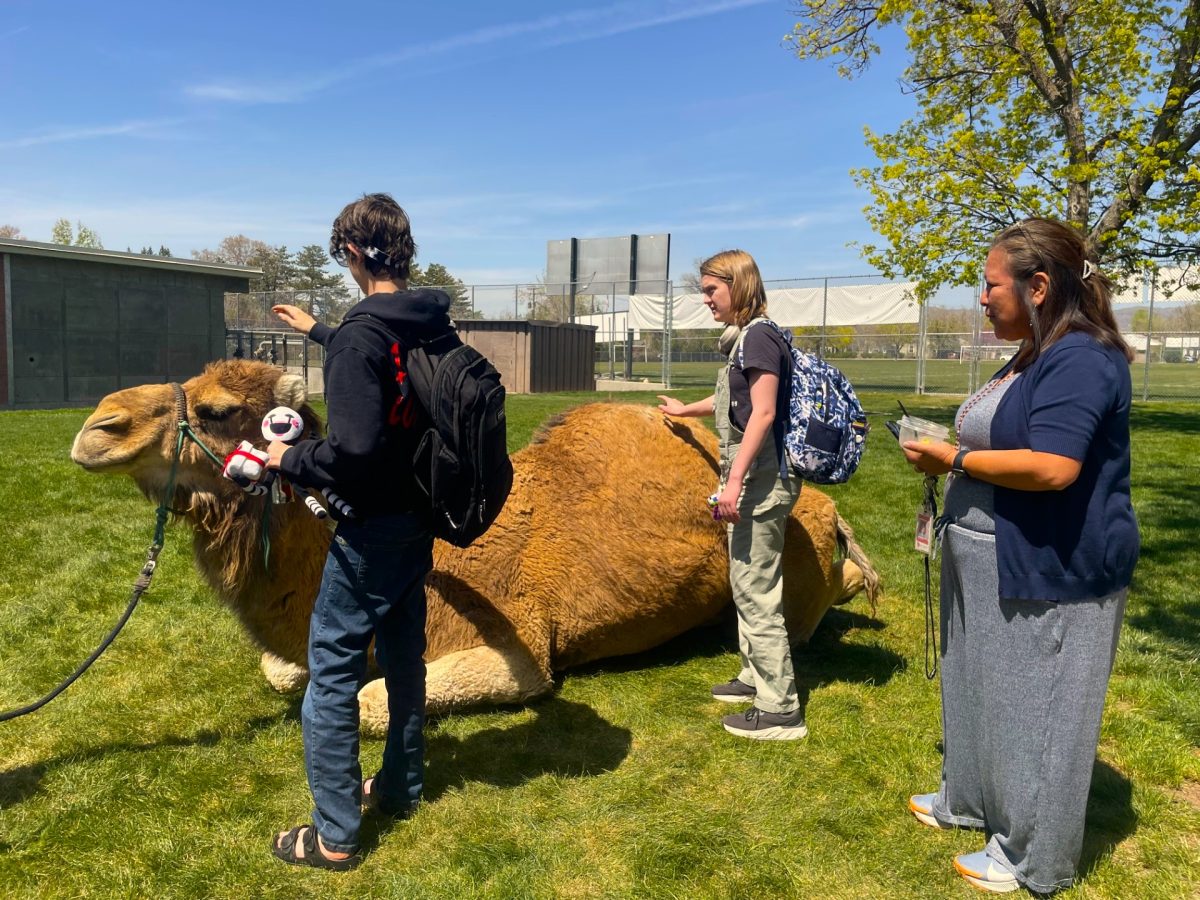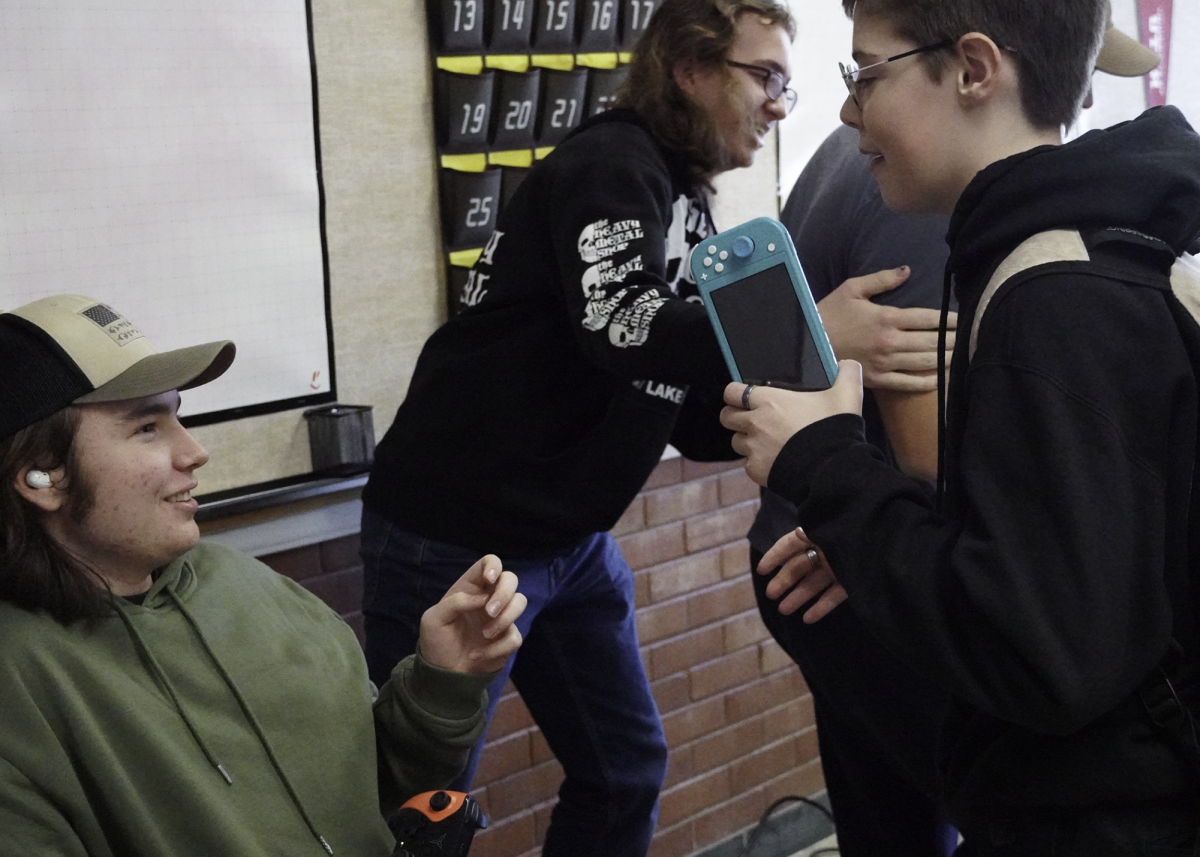Missing School for the Holidays – Bane of Existence, Or Normal Occurrence?
Lots of students miss school for the holidays. But when viewed in full context, is it really something that needs to be treated differently?
January 7, 2020
Truancy.
It goes by a million different names: skipping, sluffing, and playing hookey – all these terms describe the same phenomenon. But around this time of year, a slew of empty seats and perplexed-ly uninhabited classrooms have earned it a new one:
Leaving early for Christmas break.
While exact statistics for how many students miss Christmas break are hard to come by — in fact, they seem not to exist — it isn’t hard to see that during the week before winter break — and spring break, and autumn break — there are a lot less kids in classes, and a lot more teachers who seem to not know what to do about it.
But what’s the problem, exactly?
Well, to answer that question, one has to consider the purpose of school to begin with. School exists to educate students, and while every state deals with that responsibility differently, in our state, clear guidelines dictate that schools must be open for 180 days, approximately 1,080 hours, according to the Education Commission of the States.
This statistic is important for two reasons:
The first is that it makes it hard for breaks to get scheduled. While we as students see only the final result of a time-slot for break on a calendar, schools have to schedule in their break time in such a way as it both meets the district and state requirements for when and how often schools must be open and exceed certain expectations; such as, for example, that students should be able to have time off over Christmas. The breaks must also be planned around a quarterly term schedule, which complicates things further.
And then, of course, there’s the second issue. Because while some might see ‘school must be open for 180 days’ as ‘students must attend school for 180 days’, the alternate viewpoint is ‘teachers have 180 days to get their students through all relevant class material’.
After all, if schools are a place where education takes place, the time that they’re open dictates how much time that education has to be dispersed.
The 180 days that school is open are important; for students, because that’s how long they’re in school for any given year, and for teachers because those hours — and the schedule which defines them — set the guide, in some measure, for how they’re going to teach their class.
Ideally, teachers have 180 days to teach, and students have 180 days to learn.
Breaks, however… Breaks complicate things. Suddenly, there’s a big empty slot in the middle of a term. While it might seem normal, because of course Christmas break is a good thing, it also makes life hard for teachers and students in the days leading up to it.
Mainly because the days leading up to it happen to have a lot of missing students. Lots of students take break off early to go on trips, to go see family, or just because it’s the day before break and they can.
Skipping is hardly a new problem, but the intersection it has with school holiday breaks presents a unique problem, to say the least. It’s a problem that teachers don’t seem to know how to deal with consistently.
In some classes — like AP Physics II, the majority of the Friday before break was spent watching a movie and grading a test, both activities which could be easily missed and made up after term. However, in a class I had earlier that very morning, AP Statistics, we covered a huge section of a chapter that will feature heavily on the end-of-year AP exam. In classes like that, missing a day when work is being done is extremely hard to make up, and can put students far behind.
It seems, though, like the general consensus of most teachers is to avoid the issue of what to do before Christmas break by doing nothing. The first day or two are used to maybe cover something, and the rest of the week is spent watching movies, or having class parties, or doing even less than that.
And… to be fair, maybe that’s really the best that teachers can do, when half their classes are gone. Maybe it is unfair to cover more material when so much of the class isn’t there.
But it does seem particularly unfair to people who show up.
When classes grind to a standstill, people do notice. And the people who notice are the people who are there to; who get stuck in classes where nothing is going on because so many people aren’t there that keeping the class going on just… isn’t realistic.
The thing is, though, that there is an established policy for dealing with absences, both excused and unexcused. Teachers lay this policy out individually in their disclosures. Students who miss for an excused absence, the majority of the time, are given ample time to make up the work that they’ve missed and get the issue fixed.
That’s a policy that exists to deal, in a constructive manner, with students who miss class and students who don’t — the students who do have to make up the work because it isn’t fair to the students who don’t to not have a class that day just because somebody didn’t show up.
In a perfect world, either everyone would be at school the week before break, or nobody would. The world we live in isn’t perfect — but it seems to me that there should be no reason to not operate based on this policy before the break if it’s the policy the district does have to deal with this issue. If you’re only missing a couple of classes, you’ll have time — and be given time — to get things worked out before the end of term.
If the absences are legitimate and excused, the teachers should be understanding and grade your work for you, so long as you get it in by when they say you need to.
Either way, though, the fact remains that students who do show up should be able to feel like they’re doing something. Even if it’s not the most interesting thing in the world, teachers should provide them with some work to do; perhaps extra credit for people who show up and are there, or something that won’t affect or penalize students who miss or be extremely pervasive in the material going forward, if at all possible.
Regardless, school is school. Students have a break; but it isn’t when school’s going on. And something needs to be done regarding that going forwards.



























